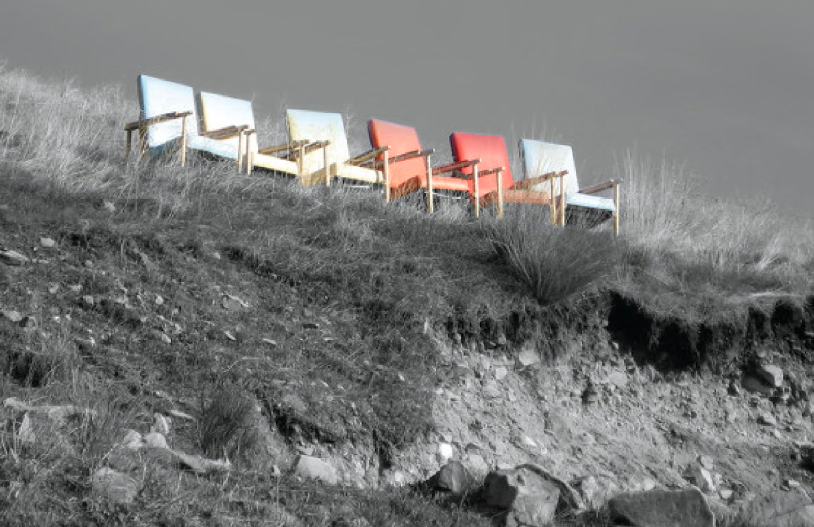Michele Glazer, On Tact, & the Made Up World, University of Iowa Press, $17 (paper)
Michele Glazer’s third book approaches ideas of death through a compelling and carefully considered lyricism. Take “In the lava tube,” whose speaker grows attuned to the slippage of all things into the past while descending into a volcanic cave. “What stays with us?” she asks after her companion charges into the dark without looking back “when his fingers drop / down a hole the light he carries.” While another poet might find consolation for loss in flights of imagination, in “Trace” Glazer confides that “the place imagined / is the place felt,” but “something down there rattles you.” Glazer is adept at striking statements of feeling and fact (“the ocean is a world of things / eating each other”), but her scrupulous passages of description, particularly of acts of perception and misperception, are her most distinctive and unforgettable (two hand-caught hummingbirds are described as “crazed suns”). Journeys by boat (or ferry) figure throughout the book, as in “That Would Be Whidbey”: “I came for something. . . . There is only one way to get there: / departure.” What Glazer departs toward most is “the fraught blossom” of memory (“Trace is the scar / itself and the finger tip moving / over the scar’s lip”), compelled by the need to formulate its material into sense, into a poem: “Debris seeks its natural angle of repose.” Intent on making something beyond “decay’s sweet roughages,” in the remarkable title poem the book finds its central metaphor: artist Leopold Blaschka’s glass flowers, which “make perfection / the object of the object.”








